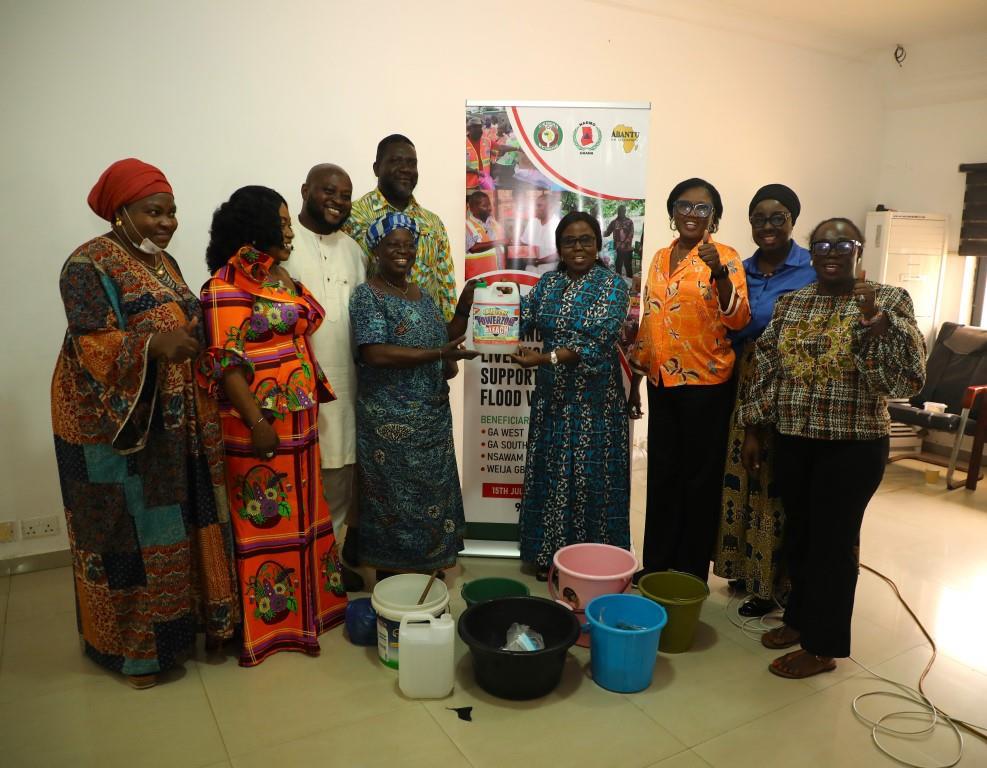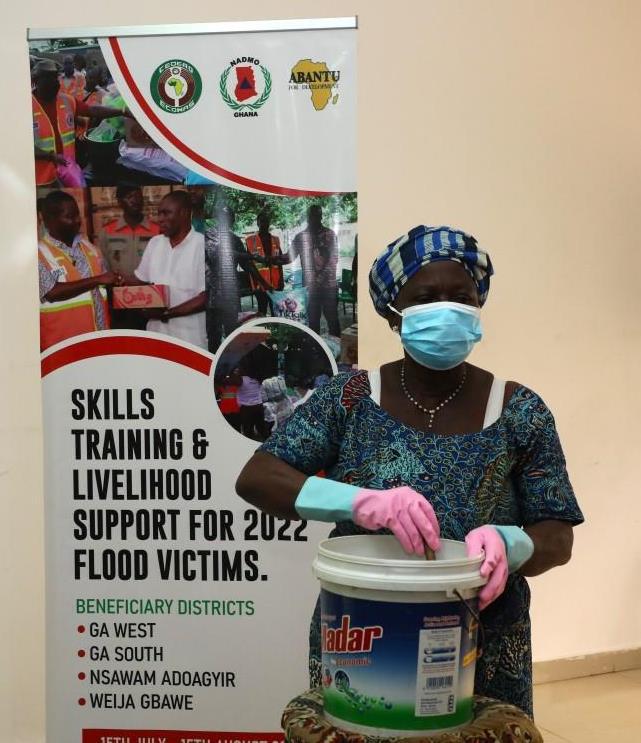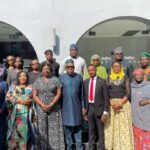ECOWAS COMMISSION CONDUCTS POST-FLOOD RECOVERY MISSION IN GHANA.-Monitoring Impact of Humanitarian Aid, Livelihood Support in Affected Regions
By Raymond Enoch
A high-level delegation from the ECOWAS Commission, led by Dr. Sintiki Tarfa-Ugbe, Director of Humanitarian and Social Affairs, has embarked on a strategic two-day field monitoring and evaluation mission to Ghana. The mission, which began on September 16, focused on assessing the impact of humanitarian aid deployed to victims of the catastrophic floods that struck the country in 2022 and 2023.

The floods, which devastated large swathes of the Greater Accra and Eastern regions, displaced thousands and destroyed homes, infrastructure, and livelihoods. In response, ECOWAS rolled out a comprehensive humanitarian assistance programme, in collaboration with Ghana’s National Disaster Management Organization (NADMO), targeting the most vulnerable communities.
During the visit, the ECOWAS team evaluated both the immediate relief and the long-term support provided to survivors. Relief efforts included the distribution of food and non-food items, as well as skill-building initiatives aimed at promoting sustainable recovery. Beneficiaries were trained in trades such as baking, hairdressing, soap-making, and farming—skills tailored to their environment and market needs.
Start-up kits were distributed to all participants upon completion of their training, equipping them to restart their lives with dignity and independence. According to Dr. Tarfa-Ugbe, the mission was not just to assess the delivery of aid, but to ensure that “our support has made a tangible difference in the lives of those most affected.”

In an emotional session, several beneficiaries shared testimonies about how the ECOWAS intervention helped restore their livelihoods and strengthened their resilience. One woman, now running a small bakery, credited the program for “turning despair into hope.”
The mission underscores ECOWAS’s continued commitment to building resilience in member states and ensuring that recovery efforts are both people-centered and sustainable. NADMO officials expressed gratitude for the collaboration and reiterated their readiness to support ongoing efforts to reduce vulnerability in disaster-prone areas.
As the region continues to grapple with the increasing frequency of climate-related disasters, the ECOWAS Commission’s focus on long-term recovery and capacity building offers a replicable model for other member states.








